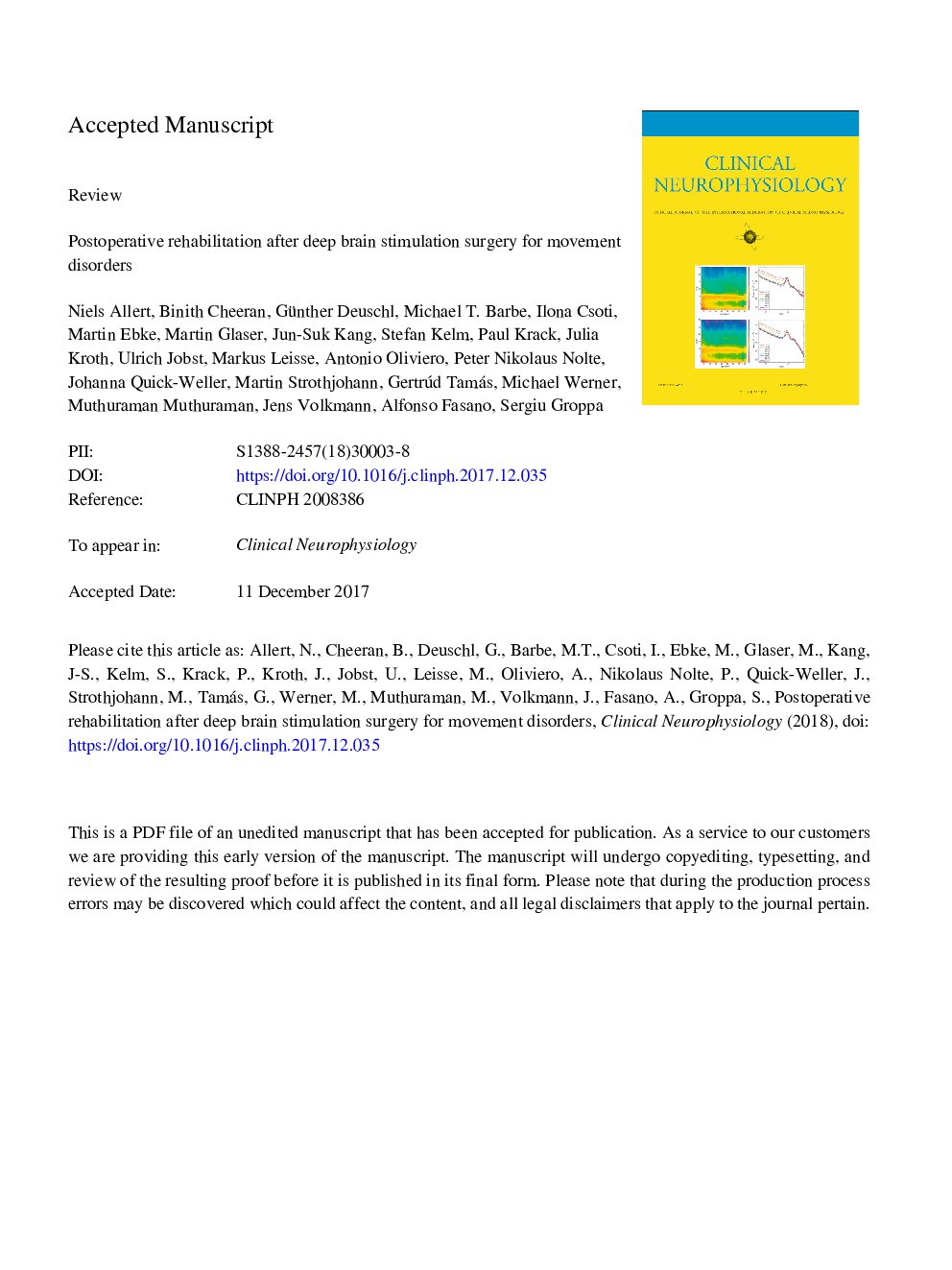| کد مقاله | کد نشریه | سال انتشار | مقاله انگلیسی | نسخه تمام متن |
|---|---|---|---|---|
| 8682715 | 1579715 | 2018 | 29 صفحه PDF | دانلود رایگان |
عنوان انگلیسی مقاله ISI
Postoperative rehabilitation after deep brain stimulation surgery for movement disorders
ترجمه فارسی عنوان
توانبخشی پس از جراحی پس از عمل جراحی تحریک مغزی عمیق برای اختلالات حرکتی
دانلود مقاله + سفارش ترجمه
دانلود مقاله ISI انگلیسی
رایگان برای ایرانیان
کلمات کلیدی
تحریک مغزی عمیق، اختلالات حرکتی، توانبخشی، ترمور، دیستونی،
موضوعات مرتبط
علوم زیستی و بیوفناوری
علم عصب شناسی
عصب شناسی
چکیده انگلیسی
Deep brain stimulation (DBS) is a highly efficient, evidence-based therapy for a set of neurological and psychiatric conditions and especially movement disorders such as Parkinson's disease, essential tremor and dystonia. Recent developments have improved the DBS technology. However, no unequivocal algorithms for an optimized postoperative care exist so far. The aim of this review is to provide a synopsis of the current clinical practice and to propose guidelines for postoperative and rehabilitative care of patients who undergo DBS. A standardized work-up in the DBS centers adapted to each patient's clinical state and needs is important, including a meticulous evaluation of clinical improvement and residual symptoms with a definition of goals for neurorehabilitation. Efficient and complete information transfer to subsequent caregivers is essential. A coordinated therapy within a multidisciplinary team (trained in movement disorders and DBS) is needed to achieve the long-range maximal efficiency. An optimized postoperative framework might ultimately lead to more effective results of DBS.
ناشر
Database: Elsevier - ScienceDirect (ساینس دایرکت)
Journal: Clinical Neurophysiology - Volume 129, Issue 3, March 2018, Pages 592-601
Journal: Clinical Neurophysiology - Volume 129, Issue 3, March 2018, Pages 592-601
نویسندگان
Niels Allert, Binith Cheeran, Günther Deuschl, Michael T. Barbe, Ilona Csoti, Markus Ebke, Martin Glaser, Jun-Suk Kang, Stefan Kelm, Paul Krack, Julia Kroth, Ulrich Jobst, Markus Leisse, Antonio Oliviero, Peter Nikolaus Nolte, Johanna Quick-Weller,
